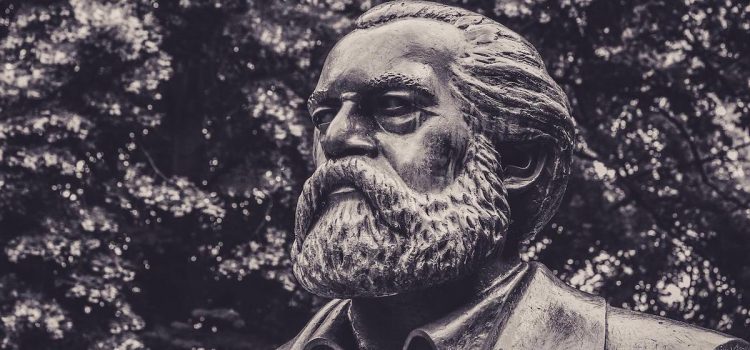
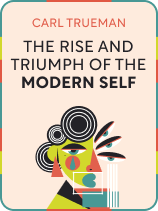
This article is an excerpt from the Shortform book guide to "The Rise and Triumph of the Modern Self" by Carl Trueman. Shortform has the world's best summaries and analyses of books you should be reading.
Like this article? Sign up for a free trial here.
What determines whether a person is good or bad? Are we inherently one or the other?
According to Karl Marx, human nature isn’t fixed or universal. That philosophy stands in contrast to the traditional Christian view of human nature. Carl Trueman argues that Marx’s concept of political selfhood reshaped our ideas about the self, morality, and human nature—ultimately transforming society.
Keep reading for an introduction to Marx’s philosophy of human nature in this intriguing historical context.
Karl Marx on Human Nature
According to Karl Marx, human nature is determined by one’s circumstances—particularly socioeconomic circumstances. In The Rise and Triumph of the Modern Self, Carl Trueman puts this view into a historical perspective, explaining the prevailing perspective before Marx’s time.
Trueman, a professor of biblical studies and ecclesiastical history, contends that traditional Christian views have become stigmatized as immoral, irrational, and bigoted. He considers these developments a disaster, as they undermine the traditional Christian morality that formed the foundations of Western culture.
Many consider this to be a sudden shift. However, Trueman asserts that this change wasn’t sudden at all. Instead, it was the culmination of a cultural revolution that has been brewing in Western civilization for centuries. He explains that this revolution began with a changing conception of the self.
Trueman states that this modern conception of the self didn’t appear overnight. Rather, it’s the result of three major developments stretching from the 18th to the 20th centuries: promoting the interior self, undermining the traditional view of human nature, and sexualizing selfhood.
Trueman explains that Rousseau and the Romantic poets laid the foundations for the rise of the “emotional and natural inner self.” But, they still believed in the traditional Christian idea that humans had a fixed and universal nature. The next part of the transformation undermined this view of human nature. Trueman identifies three figures who played a major role in this transition: Charles Darwin, Karl Marx, and Friedrich Nietzsche.
Trueman asserts that Karl Marx undermined the Christian idea of a universal human nature by placing greater importance on political and economic relationships. A 19th-century German philosopher, Marx proposed radical economic theories that are known today as the foundations of communism.
Marx believed that the upper and lower economic classes exist in a constant power struggle with each other, one in which the lower classes have the moral high ground because they’re economically oppressed. According to this view, the morality or immorality of any human action is determined by which class’s interests are served. This means that the most important thing to understand about a person was neither their inner life nor their moral life, but where they stood in a socioeconomic hierarchy.
This view runs contrary to the traditional Christian idea that humans have a universal nature that exists prior to their political and economic relationships with one another. It also downgrades the importance of divine law in evaluating morality.
| What Do Contemporary Marxists Say About Human Nature? Many modern Marxists agree with Trueman’s characterization that Marx overturned the view of a universal human nature. However, not all Marxists share this interpretation. Some argue that a consistent view of human nature can be found in Marx’s idea of “alienation.” Marx’s theory of alienation maintains that workers are “alienated” from their work in factories through the repetitive nature of their jobs and their lack of ownership over the profits. Some modern Marxists extrapolate from this that Marx believed people had an innate drive toward creative, varied, and independent forms of labor—something like human nature. Trueman’s analysis is largely focused on the greater cultural impact of Marx’s ideas rather than his particular views of human nature. However, it’s worth noting that the Marxist view of human nature also aligns with Rousseau’s: The self is in tension with society because its natural passions and inclinations are thwarted by socioeconomic arrangements. |

———End of Preview———
Like what you just read? Read the rest of the world's best book summary and analysis of Carl Trueman's "The Rise and Triumph of the Modern Self" at Shortform.
Here's what you'll find in our full The Rise and Triumph of the Modern Self summary:
- How the modern conception of selfhood has changed over the centuries
- How Christian views have become stigmatized, damaging Western culture
- What modern Christians can do to preserve traditional values

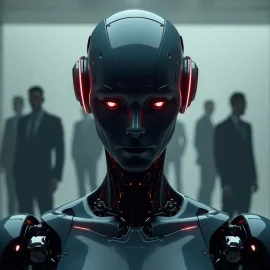
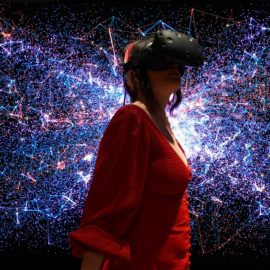

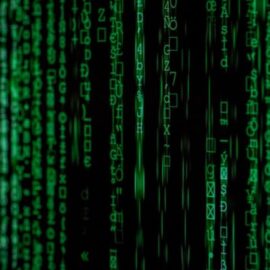
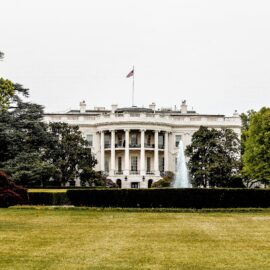
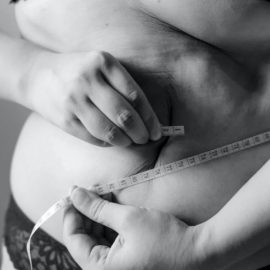
Your post encourages us to reflect on these intricate connections and advocate for a fairer, more inclusive world where individuals have the opportunity to overcome the limitations of their socioeconomic status. It’s a call to action to create a society where everyone can reach their full potential, regardless of their background.